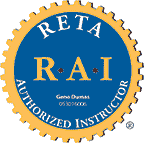

If your facility is subject to Process Safety Management and Risk Management Plan regulations, or even if you are a mom and pop grocery store, during the life of your business you’ll experience organizational change. William Lape, of SCS Engineers, writes about how we need to consider the impacts on a facility’s PSM/RMP or ARM programs and on the operation of the ammonia refrigeration system itself.
Published in the RETA Breeze, Managing Organizational Change, How It Impacts Your Ammonia Refrigeration System
Reflection, as a means of self-evaluation of the robustness of your refrigeration management system, is critical to the continuing success of your program.
Proper planning is another vital element of your program. Together, they will help ensure the continuing safety of you, your employees, and the public.
Bill Lape, a Certified Industrial Refrigeration Operator and a member of the National
Board of Directors of RETA is a Project Director for SCS Engineers. In his most recent article, Bill provides advice to use January and early February as a time of reflection and a planning period. We need to look closely at our ammonia refrigeration management programs, be they Process Safety Management (PSM) / Risk Management Plan (RMP) or Ammonia Refrigeration Management (ARM) for facilities with less than 10,000 pounds of
ammonia in their process.
Click to read the article, and thank you for interest in maintaining safety standards.
Process Safety Management, Risk Managment Plans, Ammonia Refrigeration Management information.
 Refrigeration Training and Certification Programs
Refrigeration Training and Certification ProgramsSCS has a diverse staff of certified engineers, scientists, and technicians who provide practical, cost-effective training on-site or in one of our nationwide sessions. We use training materials from RETA, IIAR, manufacturers, and field experience, as well as facility-specific standard operating procedures. See our training schedule and complete information here.
SCS’s Refrigeration Operator I & II Training Programs use the applicable RETA Industrial Refrigeration (IR) 1 & 2 manuals which are included for the duration of the classes. These intensive four-day classes are provided in locations across the nation; convenient for attendees to participate locally.
Operator I: Designed for the beginning refrigeration operator, manager, and/or safety personnel with limited refrigeration training.
Operator II: Designed for the refrigeration operator, manager, and safety personnel who have passed the Operator I class and have a higher level of experience and knowledge in industrial refrigeration systems using ammonia as a refrigerant.
PSM/RMP Introduction Class: Training course using ammonia refrigeration-focused material specific to your PSM/RMP program and facility using RETA, IIAR, manufacturers, and field materials as well as facility-specific standard operating procedures. We highlight the responsibilities of the various PSM/RMP Team Members that may include, but not be limited to, maintenance, safety, management, environmental, and/or facilities personnel:
PSM/RMP Advanced Class: Training course for experienced PSM Program Managers, Plant Managers, facility compliance personnel, and safety-EHS staff who want a detailed review of the more complex regulatory requirements included in the PSM and RMP regulations. The class focuses on the complex details of the following elements: Process Safety Information (RAGAGEP), Standard Operating Procedures, Management of Change (Project planning through PSSR), and Mechanical Integrity.
RETA CARO/CIRO Review: This intensive training is designed for operators who are pursuing their RETA CARO or CIRO certification. Each course includes a review of the pertinent materials. During Day 2, participants receive a voucher to take the RETA Practice Test. Our instructor reviews the test results and customizes Day 3 to incorporate material that was found to be deficient within the testing.
See our training schedule and complete information here.
Yes, we’re ready for another penetrating, piercing, sharp, bracing, brisk, crisp, invigorating, and rigorous RETA conference! This year SCS will be back with our game on and a great lineup with our colleagues…
If you missed Bill Lape’s The Best Little MOC Workshop in Texas catch him at the booth!
An ammonia system that has accurate valve tags, gives detail within facility documentation of SOPs, verifies the accuracy of facility P&IDs, and provides safety measures for operators and contractors for exercising the appropriate valves on the system. Standard operating procedures with proper valve tag placement also helps prevent human error.
Remember, you have the potential to improve safety and minimize risk. A strong training program and accurate operating procedures making a positive impact on worker safety and system operations.
This is the third and final article in a series of our interview with representatives from the U.S. Environmental Protection Agency (EPA), Mary Wesling and Robert Lucas, both of whom have extensive experience with Risk Management Plan – RMP implementation and enforcement. The interview continues the discussion of recognized and generally accepted good engineering practices – RAGAGEPs, Process Safety Management – PSM, and EPA resources for help.
Jake Tilley is part of the SCS Tracer Environmental team of RETA certified professionals who work with clients in food service and industrial food and beverage processing.
Click here to read the article.
SCS Engineers’ Vice Presidents Tom Rappolt and Dan Johnson have collectively been named the 2015 IEA Associate of the Year by the Industrial Environmental Association (IEA) of San Diego. An award will be presented at the 31st Environmental Awards Luncheon on October 29, 2015, at the San Diego Convention Center.
IEA promotes responsible, cost-effective environmental laws and regulations, facilitates environmental compliance among member companies and provides educational activities for the San Diego community and Southern California.
“This award recognizes SCS Engineers’ many years of support for IEA and our mission,” said Meridith Marquis, President of IEA. “Several SCS staff members have provided critical technical expertise, helped IEA members and staff in evaluating the impacts of regulatory and legislative proposals, and actively participated in several IEA committees and conferences.”
Learn more about SCS Services by clicking here.